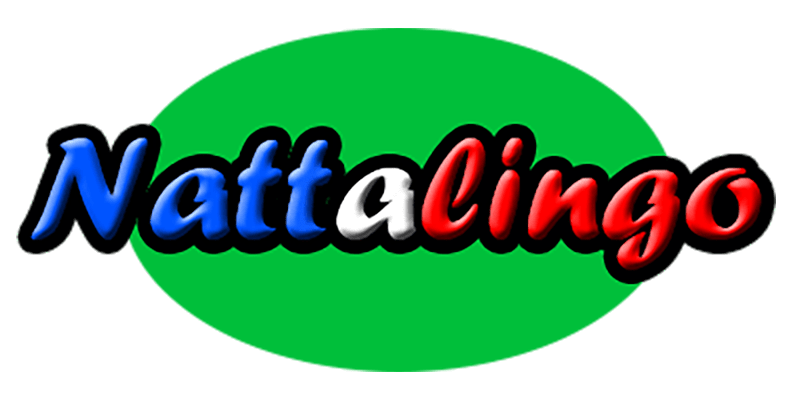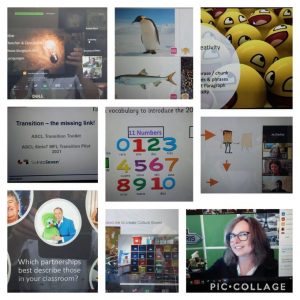
Introduction
Jo Darley kindly contacted me months ago to ask me if I would be part of this event: I can’t believe it has now come and gone! And what a fantastic day it was! Read on for my main takeaways from the day on Zoom.
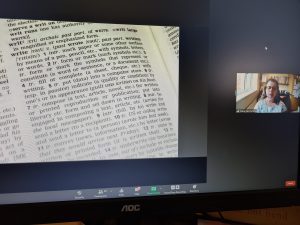
Clare Seccombe - putting pen to paper
I had heard Clare say it before, but I love this quote: “Learners will write, whether we like it or not.” We therefore might as well give them a chance to write and support them with the process!
Help the children make their writing intelligible: start with letters (including special letters like é), then move on to words, phrases, sentences and finally paragraphs.
Help the children make their writing accurate: for instance we can often anticipate their mistakes because of the interference with English, and explicitly point out possible pitfalls to them.
Support the children’s writing: for instance from writing as a class, then in group, in pairs, and finally individually.
Click here for an interesting blog on writing that Clare has since written.
Chris Williams - the Chatta approach
Chris showed us how pictures can be used at their best and how thinking in pictures can be developed.
He encourages children to practise, review, redraft and practise some more!
He advised us to use real photographs.
Click here for the Chatta website to find out more!
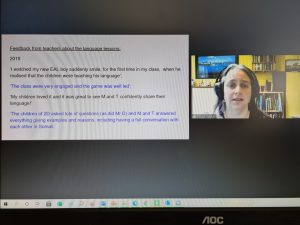
Marian Devos - celebrating cultures and languages through the use of pupil language ambassadors
Start the selection process in Y5 to have children ready in September.
They teach 10-minute lessons, in pairs, of a language that they know or that they wanted to learn; can run language clubs; be language buddies; support; train; organise competitions and celebrations; put together culture boxes… and more!
I really want to organise language ambassadors again in at least one of my 2 schools!
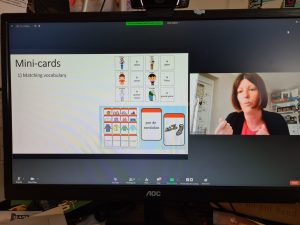
Sarah Brookes - teamwork makes the dream work!
Pair work can be used to practise phonics, for instance using activities where the children have to sort words based on sounds.
Mini cards can be exploited, in pairs, in many ways, and can even be used as a writing stimulus!
A lot of the class or even individual tasks can be made into pair work – even dictionary work.
This has definitely spurred me on to do more pair work in my lessons!
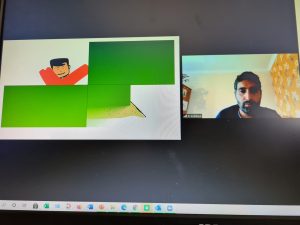
Baasit Siddiqui - link online learners
A great inspiration, with his work on unconscious bias, social mobility and racial literacy to fill the attainment gap.
Click here for the Link Online Learner website.
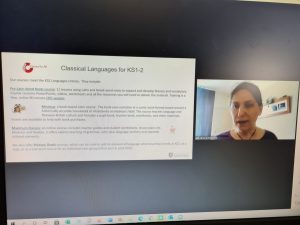
Jane Ainsworth - Classics for All
Did you know that you can access resources to teach Latin (and Greek too) all for FREE through the charity “Classics for all”? Click here to access their website!
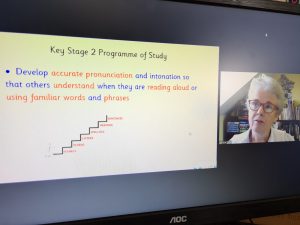
Sue Cave - top 10 tips for phonics progression in KS2
Some of them are: identify the key phonemes, systematically teach them, select a method to teach the sounds, embed phonics, use phonic-focuses activities, practise, review and retrieve.
Click here for more on Sue’s website.
Did you know that BBC Bitesize now has a languages phonics section? Click here to access the French, for examples.
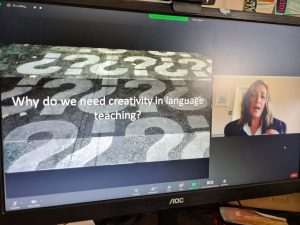
Crista Hazell - enhancing creativity in the primary languages classroom
Crista rightly (in my eyes) reminded us that there is no one way of teaching a language. So let’s be creative with it! She mentioned 7 pillars: build self-esteem, model creativity, offer pupils a choice, use questioning, make connections, explore ideas and encourage critical and self-reflection.
She mentioned LOTS of activities. The one I am going to try very soon? Tongue twisters! I have not used any for years!
Creativity encourages curiosity… so our pupils are not passive learners!
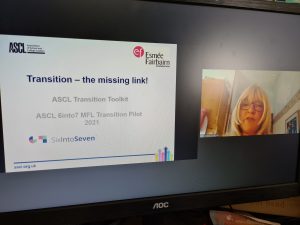
Suzanne O'Farrell - transition: the missing link!
Click here for the ASCL KS2/KS3 language learning transition toolkit.
Cultural awareness and curiosity are also important.
So is, for families, knowing that primary and secondary schools are communicating with each other!
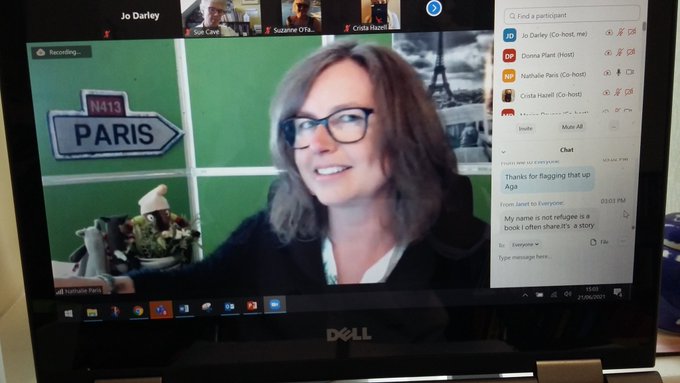
Moi - Nathalie Paris - developing intercultural understanding through picture books
Conclusion
It was just a fantastic and inspiring day. I have written this blog to help me reflect on it; I hope it helps you too, if you have read this far!
Will you come next time? Click here to keep an eye on the training on offer!
